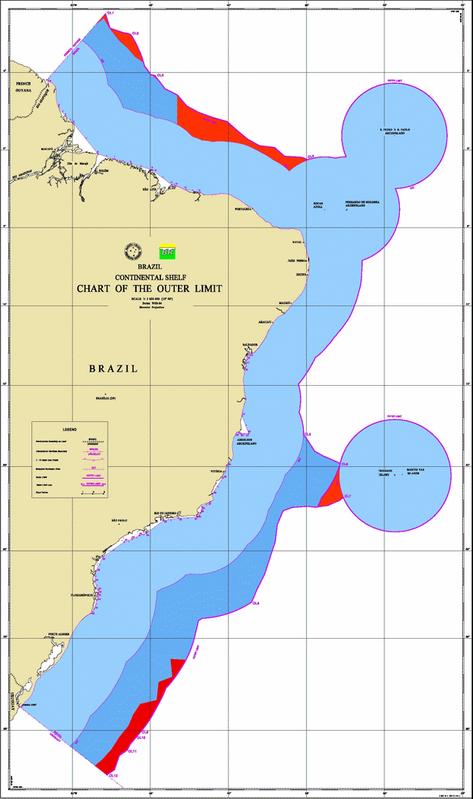Based on geological studies that point to great potential for ultra-deepwater pre-salt oil reserves beyond its exclusive economic zone (EEZ), the Brazilian government is considering offering for the first-time exploratory blocks beyond the limits of 200 nautical miles (about 370 kilometers) established by the United Nations as its continental platform.
Since 2004, Brazil has been trying to expand these limits in the United Nations (UN), and although the request has not yet been fully met, the exploration and production of oil in the region adjacent to the Santos Basin has already been authorized. The group that accompanies the request at the UN says it is desirable that the area be occupied.
The proposal is in the hands of CNPE (National Council of Energy Policy), while the ANP (National Petroleum Agency) said it has already suggested to the council the inclusion of blocks located outside the EEZ in an oil auction to be held in 2020. "In the evaluation of the agency, the region of the Santos Basin that is located beyond the limit of 200 nautical miles has potential for discoveries of petroleum deposits in the pre-salt layer," says the ANP.
"We are facing the possibility of extra great wealth, not foreseen until two years ago," says geologist Pedro Zalán, in an interview to Folha de São Paulo newspaper. Zalán had a long career at Petrobras and now runs the consulting firm Zag. He analyzed data collected by Norway's Spectrum Geo in an area that stretches between the coast of the state of Santa Catarina and the Lakes region northeast of Rio de Janeiro and claims to have identified structures similar to structures present in existing pre-salt reservoirs outside the 200-mile EEZ. He estimates that, by analogy, the structures could hold between 20 and 30 billion barrels of oil and gas in prospective resources.
In the pre-salt areas already being explored, prospective resources are estimated at over 40 billion barrels. The expectation for the EEZ, however, still embodies great risk, since it is made based only on seismic research. To confirm the existence of oil and/or natural gas, an exploratory drilling program needs to be undertaken and there is still much work to be done to delimit the reservoirs, and to prove they are commercially viable.
 Brazil EEZ and beyond (Image: Petrobras)
Brazil EEZ and beyond (Image: Petrobras)



